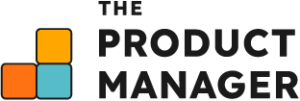Currently, only about 1 in 4 employees in the tech industry identifies as a woman. So what does it take to create a successful career as a woman in tech? In this interview series called Women in Tech, we spoke to successful leaders in the tech industry to share stories and insights about what they did to lead flourishing careers. We also discuss the steps needed to create a great tech product. As part of this series, I had the privilege of interviewing Kamales Lardi, author of The Human Side of Digital Business Transformation as well as the Managing Director and President of the Board of Directors of Valtech Switzerland.
Kamales is a bold and strategic thinker in digital and business transformation. She combines over 23 years of deep cross-industry experience with the latest digital and technology solutions. Kamales is listed in the “Top 10 Global Influencers & Thought Leaders in Digital Transformation” (Thinkers360) and Top 50 Women in Tech Influencers 2021 (The Awards Magazine). Since establishing Lardi & Partner Consulting GmbH in 2012, Kamales has advised many multinational companies across various industries in Europe, Asia, and Africa for over a decade.
If that wasn't impressive enough, Kamales has developed a deep knowledge and practical experience in a range of emerging technology solutions, such as blockchain, AI, virtual and augmented reality, 3D-printing, IoT and sensor technologies, and robotics process automation, among others. She is a Teaching Fellow at Durham University Business School, and is the Chair of the Forbes Business Council Women Executives. She is a dynamic and influential speaker and regularly presents at corporate and industry conferences. In 2022, Kamales was recognized in International 40 Over 40 - The World's Most Inspiring Women by CapGemini Invent and Female One Zero.
Thank you so much for joining us in this interview series! Before diving in, our readers would love to learn more about you. Can you tell us a story about what brought you to this specific career path?
My career in the tech space was anything but planned. In the 1990s, as I was exploring university courses to pursue, I was attracted to Computing and Information Technology. However, back then, there was little understanding of the tech industry, and few women were encouraged to join the industry. I was often referred to explore studies that were more ‘women-friendly’ such as marketing and communications but decided to join technology.
I quickly realized that technology studies suited me well, and I developed strong capabilities in a range of topics from operating systems, web development, and programming languages, to data structures, computer networks, etc. I also found that I enjoyed coding, which required structured thinking, logical problem solving, and the tenacity to get it right (keep in mind that back then, programming, SQL, Cobol, C++, and Visual Basic, were not very user-friendly!)
I graduated top of my class and was scouted by Accenture (Andersen Consulting at the time) as a business analyst. This was my introduction to the consulting industry, where I found my passion at the crossroads of business and technology, which has lasted over 23 years in business advisory and technology implementation. The first few years of my career involved large technology solution implementation, such as SAP systems, where I developed foundational expertise in technology application in business – people, processes, technology, and data/information. Management consulting in tech offered invaluable depth and breadth of experience, where I was able to build up expertise across industries, organizations, and business functions.
What do you feel has been your ‘career-defining’ moment? We’d love to hear the lead-up, what happened, and the impact it had on your life.
There have been many instances in my professional journey that I would view as defining moments when I was at a crossroads or decision point.
One example was deciding to remain in Europe after completing the MBA, instead of returning to Asia (where I had good prospects of returning to a high-paid consulting position). My decision was partly personal, but also I wanted to gain experience in the global market.
At first, it was very challenging to find work as a foreigner and woman, despite strong experience in consulting and qualifications (I was often told that I was ‘too experienced’ for junior positions or ‘too young’ for senior positions at the age of 26 then). This was my introduction to the equality gap that existed in the European business landscape that still persists.
However, I accepted an entry-level role as a data entry assistant at Zurich Insurance Company and worked my way up the ranks quickly. Within two years, I was promoted multiple times, finally joining the internal consulting as part of the management team. I learned to trust my skills and capabilities, as well as focus on high-quality outputs, to help me stand out and build credibility.
Another moment that was truly life-changing was after returning to work at one of the big four consulting firms following my maternity leave. I quickly realized that, as a working parent, the consulting lifestyle would be too demanding, and there would be little work-life balance. Additionally, there was also a strong perception against working mothers among my colleagues and the leadership team, even though I was in a senior position at the time with a strong track record for high-quality work.
Instead of fighting against the system and work environment, I decided to branch out on my own. At the time, most of the people around me tried to discourage this choice, citing potential failure as a strong reason to search for other employment. However, I decided not to listen to the noise and launched my consulting company in 2012. This was one of the best things I have ever done, and the company successfully grew our portfolio of business and clients over the past decade. It was undoubtedly very challenging, as I had to learn new skills and do things completely on my own, but it was satisfying to build up the company, brand, and offerings.
Can you tell us a story about the hard times that you faced when you first started your journey? Did you ever consider giving up? Where did you get the drive to continue even though things were so hard?
Every aspect of starting my own firm was challenging, from setting up the company, brand, and offerings, to generating leads and converting clients.
Unlike consultancies like Accenture and Deloitte, where the brand name carries a significant part of the interest and credibility, I was having to convince clients of my value and credibility as an individual and new company. However, tenacity proved effective, and within a few months, I was engaged in projects with large corporations such as UBS.
It was also a challenge to find a balance between generating leads, delivering projects, as well as managing teams and clients, not to mention family and personal needs. At times, I had considered giving up and going back into employment. However, I am self-motivated, ambitious, and driven, so I pushed myself to keep going, eventually finding success and recognition. A key lesson was to be self-motivated, stay true to my own values, and define my own success indicators.
Let’s shift to the main focus of our interview. We’d love to learn a bit about what you do. What is the pain point that you help to address? How do you help business leaders?
I like to describe myself as a business strategist and technology optimist. I believe in the transformative impact of technology in our business environment and lives in general. I guide business leaders and enable organizations across industries to transform traditional business models, processes, and operations to meet the needs of the digital economy and the future of customer experience.
Based on practical experience, I help companies drive digital transformation initiatives, from strategy to execution. This may include modernizing and digitizing the existing business, as well as developing robust use cases, proof of concepts, and integration plans for emerging technology solutions i.e. blockchain, artificial intelligence, AR/VR, internet of things, 3D printing, robotics, sensor tech/wearables, social media among others. In addition, I also provide digital leadership and mindset coaching for senior executives and board members, providing essential guidance on leading organizations and teams of the future.
If someone wants to lead a great company and create great products, what is the most important quality that person should have, and what habits or behaviors would you suggest for honing that particular quality?
A clear purpose! Building a purpose-driven organization will ensure sustained success, and attract people with similar values to your team.
Next, let’s talk about teams. What’s a team management strategy or framework that you’ve found to be exceptionally useful for the product development process?
In my experience, Agile framework is effective for team management and successful product development. By relying on time-bound Sprints, iterative progress, accountability among all members of the development team, and clear communication by dedicated roles such as Scrum Master or Product Owner, teams can quickly deliver working incremental results while adapting seamlessly to changing requirements. This makes it ideal in a fast-paced environment where feedback loops are essential outcomes.
Related Read: 10 Best Agile Product Management Software
When you think of the strongest team you’ve ever worked with, why do you think the team worked so well together, and can you recall an anecdote that illustrates the dynamic?
The best teams that I have worked with usually consist of a diverse group of people. My reference to diversity includes a diversity of thought that is represented by different genders, cultures, upbringing, sexual orientations, and educational backgrounds. Diversity brings openness and abundant thinking that drives innovation, and it development of technology solutions that cater to a broader market. Additionally, shared values and purpose drives strong team commitment, interaction, and collaboration.
If you had only one software tool in your arsenal, what would it be, why, and what other tools (software or tangible items) do you consider to be mission-critical?
I am not able to pinpoint one singular tool, as I utilize a range of tools that work in cohesion to offer efficiency, collaboration, and a continuous flow of critical information. Additionally, there are many new AI-based platforms and tools that accelerate my work and effectiveness.
Let’s talk about downtime. What’s your go-to practice or ritual for preventing burnout?
I am an advocate for self-care and practicing the principles of mindfulness. Admittedly, I have learned the importance of this only in recent years, but have gained significant benefits in both the personal and professional aspects.
As a business leader, mindfulness practices can be invaluable. From meditation to mindful conversations and prioritizing important tasks, there are many ways of incorporating this into your daily routine for improved focus, stress reduction, increased well-being, and greater self-awareness.
Additionally, I put in an effort to create an environment of awareness in the workplace by fostering this culture with teams around me.
Based on your experience, what are your “5 Things Needed to Create Great Tech Products”?
1 . A value proposition or problem space that is being addressed. Technology is not a silver-bullet solution, a clear value proposition and understanding of the problem should drive business transformation and technology implementation.
2 . A dedicated team. An exceptional product requires the collaboration and hard work of a dedicated team with an array of skills. From engineers to designers, product managers to testers, having these professionals working together ensures that any tech creation is able to reach its full potential.
3 . Diversity of thought. A mix of people who bring open and innovative thinking, and are able to design technology solutions that cater to the broader masses.
4 . Well-thought-out user experience. User experience is at the core of any successful tech design. Through diligent consideration and evaluation, a product can be tailored to satisfy users in every way possible - from implementation through usage testing and refinement based on feedback.
5 . Sound engineering. A successful tech product needs more than just great features. Having a robust technical foundation is essential for ensuring the scalability, reliability and security of your product. The right technologies must be leveraged to ensure that you can stand out from competitors in today's competitive market.
Are you currently satisfied with the status quo regarding women in tech? What specific changes do you think are needed to change the status quo?
We have come a long way since I started in the 1990s, but there is still a significant diversity gap in the tech industry. Tech companies should continue to implement a variety of practices to reduce bias in the recruitment process, including unconscious bias training, blind hiring, and flexible working arrangements. I believe it is important to recognize that increasing diversity in tech is an ongoing process, not a one-time event, and requires commitment and action from leadership and all employees. The recent tech company layoffs that have been announced since late 2022 represent an alarming trend in terms of their disproportionate impact on women and minorities who are already underrepresented in many tech firms' workforces and could have far-reaching consequences, both now and in the future.
Is there a person in the world with whom you would love to have a private breakfast or lunch, and why?
There are numerous leaders that I would like to meet for sure. Tim Cook, CEO of Apple, and Oprah are high on my list. However, given a choice, it would be great to meet Serena Williams and Alexis Ohanian. Not only are they strong business leaders in their own right, but also demonstrate values that I share and advocate for diversity.
For more content like this, subscribe to The Product Manager newsletter.


